Connie Peterson is stateside now, but her thoughts are still with the people she left behind in Haiti. After four days of emergency medical care, carrying people through rubble, and being evacuated through streets so muddy they were nearly impassable, she may be home but she’s not at peace.
“I’ve noticed since I came home that I’m unable to shift my focus from Haiti,” said Peterson, a professor in Concordia’s nursing department.
Peterson had planned to use part of her sabbatical this semester to visit Haiti and bring medical supplies to a school she had worked with in the past. Instead, she found herself caught up in the latest of a series of harrowing disasters that have wracked Haiti in the last decade.
This was not Peterson’s first trip to Haiti. She had been there two years ago with the same organization, Hosean Internatial Ministries, which worked with Trinity Lutheran Church in Moorhead to send a two teams to the country: one team of medical staff, and one team of missionaries. This time, Peterson, her husband, and their team arrived to work in a town called Pignon, about 85 miles north of Port-au-Prince, at a school called College de la Grace that has 800 students but no medical care. That was Saturday, three days before the earthquake.
Around 5 o’clock on Tuesday, the earthquake hit Port-au-Prince.
“We knew there had been an earthquake,” she said. “We felt the ground shake and we heard the buildings shake.”
However, the quake knocked out cell phone, Internet, and radio service. It was not until almost 10 o’clock that night that the team heard, via satellite phone, exactly what had happened.
“We were horrified by the news of what happened in Port-au-Prince,” Peterson said. “That was our first thought—and our second thought was, ‘what are we going to do?’ ”
The team was only able to make one more call with their Satellite phone. Before leaving they had organized a “phone tree” so they would only have to call one person in case of an emergency, and that person would begin calling others who would call still others to spread the news to friends and family back home. They activated the phone tree, then went into action.
Peterson had originally gone as part of the missionary team, but because of her nursing background she immediately became a part of the medical team once the earthquake happened. They started to prepare to treat mass casualties, organizing what supplies they had and setting up triage stations. The day after the quake, Peterson and the others in Pignon felt aftershocks. Concerned that the building they were in might collapse, the team evacuated everyone. Peterson had been treating a fresh surgical patient at the time.
“We grabbed a stethoscope, a backpack full of stuff, and a blood pressure cuff and basically ran out into the courtyard with a gurney,” she said, “and we recovered the patient in the courtyard with only what we carried.”
Peterson said the Haitian’s first reaction was to trust God in the midst of tragedy. The culture is very vocally expressive (“unlike Midwesterners,” Peterson joked), and used their voices and their faith to cope with the tragedy.
“You could hear hymns being sung in the street all night long, every night,” she said. “You could also hear grieving. People grieving all night long.”
By Friday morning, it was clear that there was little the team could still do to help, and their hosts in Pignon were becoming increasingly anxious about the potential that the country’s supply chain, particularly of diesel, would dry up before they could get out. It was time to evacuate. When they left, no aid workers had yet started to arrive in Pignon.
“We left with high levels of ambivalence,” said Peterson. “But when your host says go, you have to go.”
The group took a bus from Pignon to a town 40 miles north, called Cap Haitien. They left behind most of what they brought, including their wheeled suitcases, in the hope that the people they were also leaving behind might be able to use it.
“Anything we had that we thought might be helpful at all we left,” she said, “so we didn’t have a lot of luggage to come home with.”
Unable to leave from Port-au-Prince, where they had entered the country, the team had to instead drive to the Dominican Republic to be evacuated. The roads, all unpaved, had deep ruts in places and had been washed away in others.
Torrential rain in the days leading up to their evacuation made the rocky gravel turn to thick mud.
“The trip was extremely difficult,” said Peterson. “The roads were indescribably bad. Top speed often is less than 10 miles an hour.”
The trip to the border would take them 12 hours. Along the way, their bus picked up a large group of refugees they encountered on the road. The refugees had been trying to walk the 40 miles to Cap Haitien. They’d been going on foot for nearly four days. They were barefoot and hadn’t eaten since they left Pignon.
On the bus, the team tried to help the refugees in any way they could. Peterson said that she was amazed by their refugees’ generous impulse to help each other even in the midst of their hardship. She had asked a Haitian man if he was hungry and offered him the only food she still had in her backpack: a bag of trail mix.
“He took a little handful,” she said, ‘then he passed it to the next one, and the next one, and the next one. And at the end of all their passing around, taking a little handful…they gave me back the rest.”
Crossing the border to the Dominican Republic was the hardest part of the whole journey. The relatively affluent Dominican Republic does not look on Haiti with favor. No Haitians and only a few authorized vehicles are allowed into the country from their shared border, and the team had only one authorized vehicle: a pick-up truck. The team put what little luggage they still had in the truck, then walked over the border.
They had arrived at the border on a market day, when Haitians flock to the border to purchase food and supplies to bring back to their villages. Peterson said the hardest part about the crossing was contending with the mass of humanity moving the opposite way. The team had to hold onto each other’s shirts in order to stay together.
“There was just carts and donkeys and oxen and banana trucks, and it was just life-threatening at the border,” she said. “It was the most terrifying experience I’ve ever had.”
Once across, the language switched instantly from a French-based Creole to Spanish. The team was late getting to the airport—a few more minutes could have cost them a way to get home for a very long time.
“We knew if we didn’t make our plane that our departure would be delayed indefinitely,” she said. “The pilot took mercy on us and held the plane, so that was a miracle.”
Hours later, they were finally home. Now, Peterson’s focus for the remainder of her sabbatical is doing everything she can to help Haiti from a distance. She thinks that having the world so intensely focused on Haiti can be a problem, especially if the world’s care doesn’t last.
“My fear is that all this aid will role into the country for the short term,” she said, “and the Haitian people are going to need long-term organization and long-term care for the people who have survived the earthquake.”
Barbara Witteman, a Concordia professor who accompanied Peterson on her first trip to Haiti two years ago, shares Peterson’s concerns for Haiti’s future. She said that Haiti was a struggling country to begin with, and the disaster only compounds their problems.
“My reaction was ‘I’ve seen Haiti on a good day’. I can’t imagine what it would be like after a 7-point earthquake,” she said.
Witteman believes America’s response so far has been good, but, like Peterson, she is worried about what will happen to Haiti once the relief effort dies down.
“I think [the response is] great, but I also hope that they do not forget that Haiti will probably still be the poorest country in the western hemisphere,” she said.
Peterson applauded the efforts that have been taken on the Concordia campus so far, however. When she first walked into Knutson Campus Center on her first trip back to campus following her evacuation, she saw the Concordia Haitian Relief Fund table in the atrium. She wanted to cry.
Peterson teaches an inquiry seminar in the fall called Global Health Issues. This fall, her students helped a local organization called HERO package medical donations to distribute locally and internationally. The supplies had been waiting when she got to Pignon.
“So, we packed the supplies in October, that were shipped in November, that we used to take care of earthquake victims in January,” she said. “That’s kind of a full-circle feeling for me.”
Stewart Herman, another Concordia professor who was on the Hosean mission to Haiti with Peterson two years ago, said he has been communicating almost daily with friends in Haiti since the earthquake. Already, the efforts of Peterson’s team since they returned to Moorhead can be felt. In an email sent to Herman on Jan. 20, Debbie Lucien, the wife of a pastor that Hosean International Ministries works with in Haiti, wrote about a recent shipment of much-needed supplies. The supplies had been sent back to Haiti by an organization called Mission Flights International almost as soon as Peterson’s team returned home.
“Somehow, after returning to Fargo/Moorhead on Sunday night, they managed to organize 600 lbs. of medical supplies and two 5 KW generators, ship them or purchase them in FL and get them to MFI,” she wrote.
Peterson, Witteman, and Herman have no plans to return to Haiti anytime soon, though all said they would like to eventually. Herman says he would particularly like to bring a group of Concordia students, but that won’t be an option for a very long time. Concordia’s Global Education program won’t send students anywhere considered unsafe, and Haiti is on America’s “watch list” for violence. Herman disagrees with this assessment.
“That’s the American stereotype of Haiti: that it’s violent,” he said. “That’s Port-au-Prince. That’s not Pignon. Pignon is safer than Moorhead.”
Still, Peterson says the need to stay involved in Haiti is tremendous. A full recovery, she believes, will be dependent upon helping Haiti help itself.
“I don’t think we as the US or any country can come in and fix Haiti,” she said.
In order for this to happen, Peterson believes Haiti needs to develop infrastructure such as paved roads, working ports, and schools. They will also need a stable government, she said, and Americans must form effective relationships with Haitian officials. Herman agreed, and added that Haiti’s chief concern should be investing in good education at all levels of learning.
All of this will take money—money that is likely to come from American wallets. Peterson believes Americans should rise to the challenge.
“It’s going to be an absolute necessity for people of [our] generation to be global citizens,” she said. “You can’t just live in your country and be isolated from the rest of the world. It’s all connected.


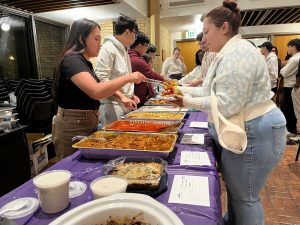
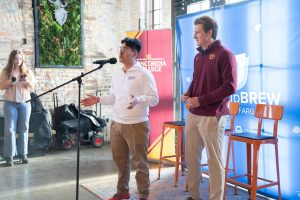

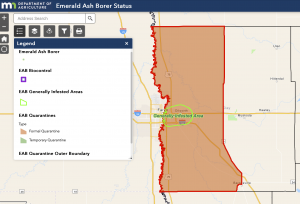
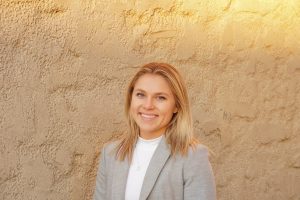
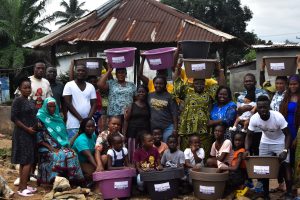
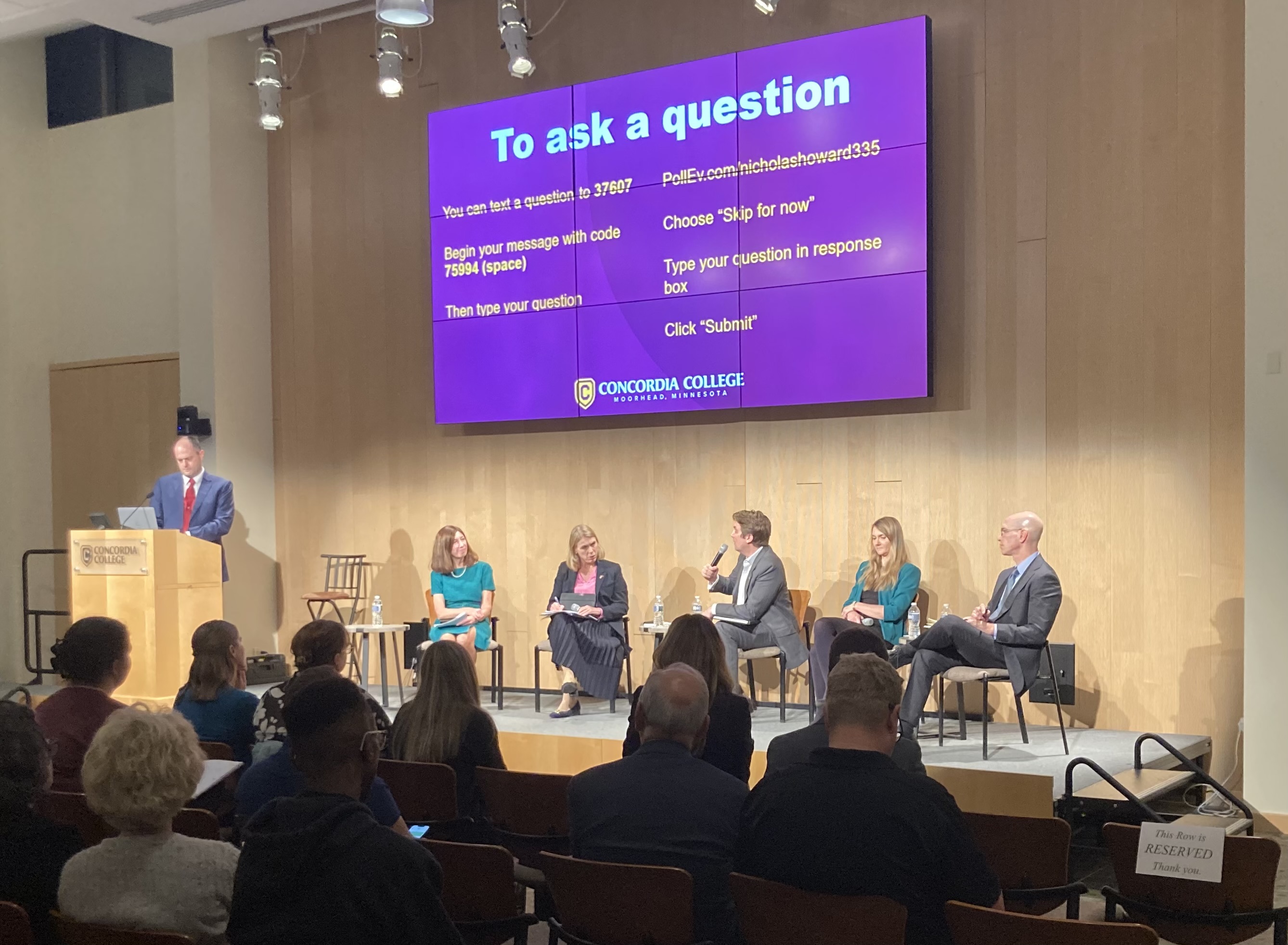
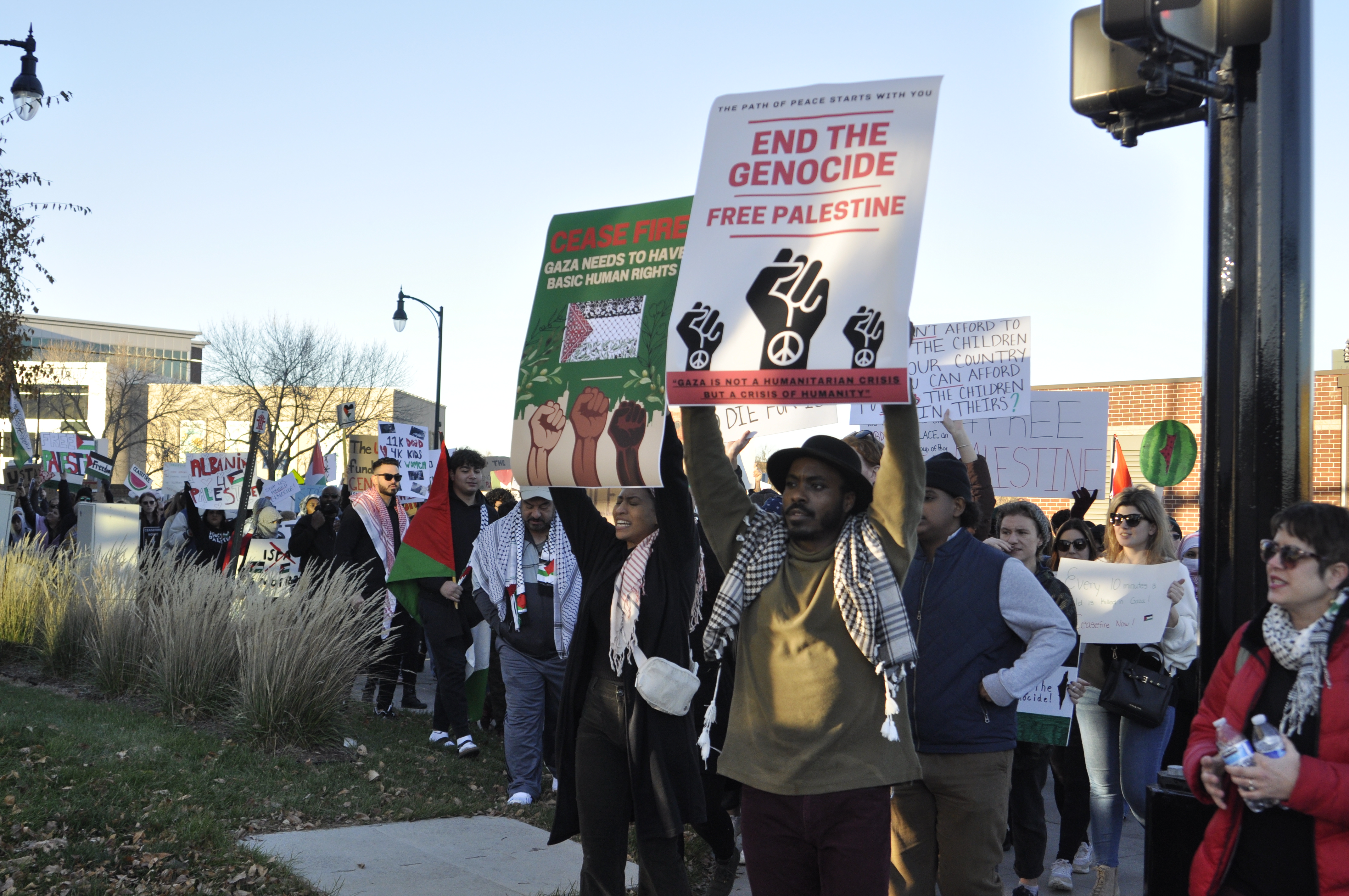
Be First to Comment